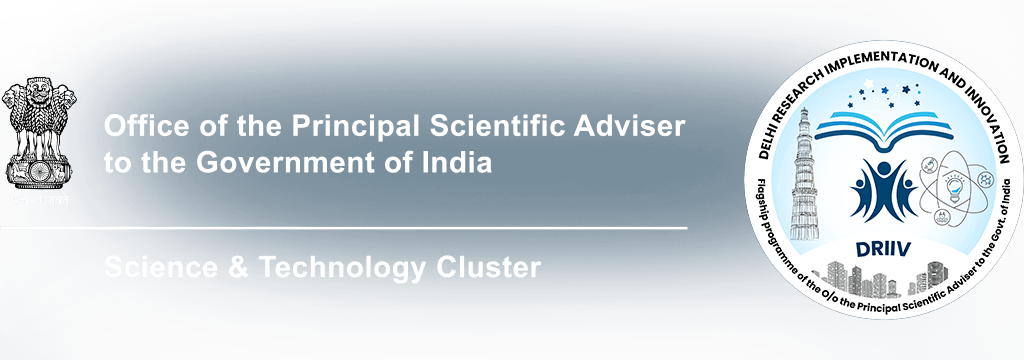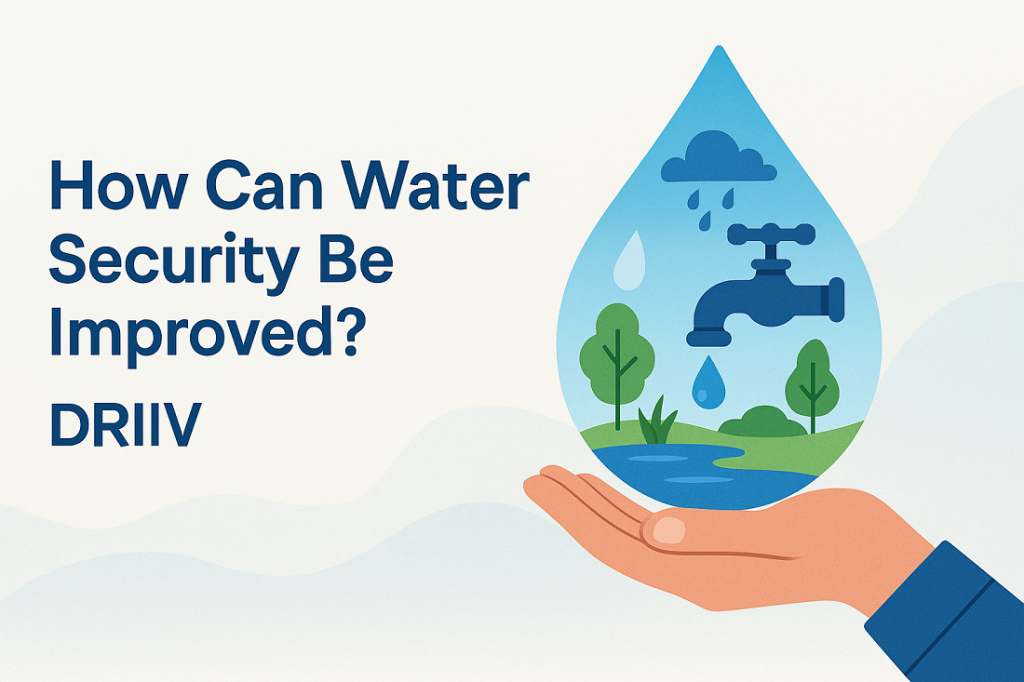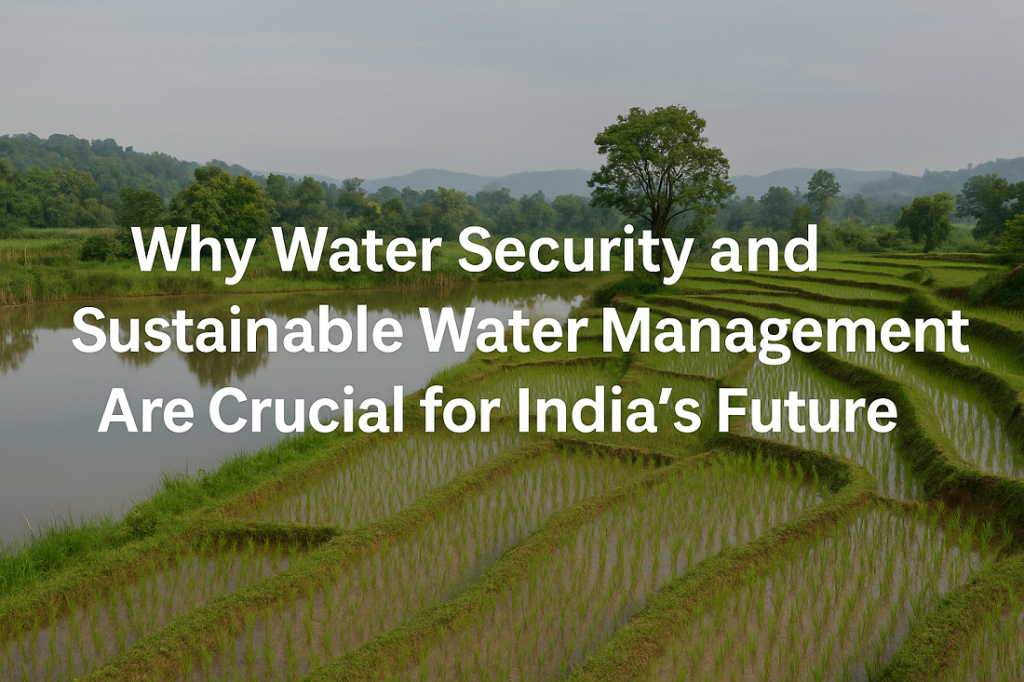Water is the most important resource for life. Without clean and safe water, no country can grow or be healthy. But today, water scarcity and pollution are becoming big problems across the world, especially in India. This is why improving water security is so important.
In this blog, we will explain how water security can be improved, why it matters, and how sustainable water management and water conservation can help.
What is Water Security?
Water security means having enough clean and safe water for drinking, farming, industries, and other daily needs. It also means protecting water sources from pollution, overuse, and climate change impacts.
In simple words, water security is about making sure that people, animals, plants, and industries always have safe and sufficient water — now and in the future.
Why is Water Security Important?
Water is essential for:
- Drinking and health
- Growing food (agriculture)
- Producing goods in factories
- Generating electricity
- Supporting ecosystems like rivers and forests
If we do not ensure water security, we face:
- Water shortages
- Dirty and polluted water
- Poor health
- Food insecurity
- Damage to the environment
Water Security in India
Water security in India is becoming a major concern. With a growing population of over 1.4 billion people and increasing demand for water, many regions in India are facing water scarcity. Cities like Chennai, Bengaluru, and Delhi have already experienced severe water crises.
India depends heavily on monsoon rains and underground water for its water needs. But over-extraction of groundwater, pollution of rivers, and climate change are making the situation worse.
According to reports, nearly 600 million Indians face high to extreme water stress. By 2030, India’s water demand is expected to be double the available supply if no action is taken.
How Can Water Security Be Improved?
To improve water security, we need a combination of smart policies, new technologies, community participation, and individual responsibility. Here are some simple yet effective ways to achieve better water security:
1. Sustainable Water Management
Sustainable water management means using water wisely and ensuring that our water sources remain healthy for future generations. This includes:
- Reducing wastage of water
- Recycling and reusing water
- Protecting rivers, lakes, and groundwater from pollution
- Using modern technologies for efficient water use in industries and farming
- Monitoring water quality and quantity regularly
At DRIIV, we believe in promoting technologies and partnerships that support sustainable water management to ensure water security in India.
2. Water Conservation at Every Level
Water conservation is one of the simplest and most effective ways to improve water security. It means saving water wherever possible. Individuals, communities, industries, and governments all need to take steps like:
Fixing leaking taps and pipes
- Using water-efficient appliances
- Harvesting rainwater
- Reusing greywater (from washing machines, kitchens) for gardens
- Encouraging water-saving farming techniques like drip irrigation
- Every drop counts. If everyone saves a little, it can make a big difference.
3. Rainwater Harvesting
Collecting and storing rainwater is a great way to increase water availability. Rainwater harvesting can be done at homes, offices, factories, and schools. It helps recharge groundwater and reduces dependence on external water sources Many cities in India like Chennai and Bengaluru are making rainwater harvesting mandatory for buildings.
4. Protecting Natural Water Bodies
Lakes, ponds, rivers, and wetlands are natural sources of water. They help maintain the water cycle and recharge groundwater. But pollution, illegal construction, and dumping of waste are destroying them.
We must:
- Stop dumping garbage and chemicals into water bodies
- Clean and revive polluted lakes and rivers
- Protect forests and catchment areas that help water flow naturally
- Involve local communities in the protection of water sources
5. Wastewater Treatment and Reuse
Treating and reusing wastewater from homes, industries, and sewage systems can reduce freshwater demand. Modern wastewater treatment technologies make it possible to safely reuse water for gardening, construction, and even industries.
Many Indian cities need to improve their sewage treatment capacity to avoid polluting rivers and lakes.
6. Efficient Agriculture Practices
Farming uses nearly 80% of India’s freshwater. To improve water security in India, we must adopt water-efficient farming practices like:
- Drip and sprinkler irrigation
- Growing crops suitable for the local climate
- Reducing water wastage in irrigation
- Reusing treated wastewater for farming
7. Raising Awareness
Many people still waste water or pollute it because they don’t understand the seriousness of the problem. Schools, colleges, and organizations like DRIIV can run awareness programs to educate people about water conservation and sustainable water management.
When people are aware, they can take action.
8. Use of Technology and Innovation
New technologies can greatly help in managing water better. Some examples are:
- Smart water meters to track usage
- Sensors to detect leaks
- Satellite monitoring of water bodies
- AI and data tools for water planning
- Phycoremediation for cleaning polluted water naturally
At DRIIV, we encourage research, innovation, and partnerships that help in improving water security in India using science and technology.
9. Strong Policies and Government Action
To ensure water security, strong laws and policies are needed. The government must:
- Enforce strict rules against water pollution
- Regulate groundwater extraction
- Invest in water infrastructure like pipelines and treatment plants
- Support farmers with water-saving technologies
- Plan for water management in urban areas
Role of DRIIV in Improving Water Security
At DRIIV, we work with scientists, industries, and communities to find innovative solutions for India’s biggest challenges, including water security. We promote:
- Smart water management technologies
- Wastewater treatment solutions
- Rainwater harvesting models
- Awareness programs for water conservation
- Community-led water protection initiatives
Together, we can build a future where every Indian has access to clean, safe, and sufficient water.
Conclusion
Water is life. Without water, there can be no development, no health, no future. Improving water security is not just the job of the government — every citizen, business, and community must play a role.
By adopting sustainable water management, practicing water conservation, using new technologies, and protecting our water sources, we can ensure water security in India for generations to come.
Let’s act today for a water-secure tomorrow.
FAQs: How Can Water Security Be Improved?
Q1. What is water security?
Water security means having enough clean and safe water for drinking, farming, industries, and other needs while also protecting water sources from pollution and overuse.
Q2. Why is water security important for India?
India has a large population and limited water resources. Climate change, pollution, and over-extraction of groundwater have made water scarcity a major challenge. Water security is essential for health, food, economy, and environment.
Q3. How can individuals help improve water security?
Individuals can:
- Save water at home
- Fix leaks
- Reuse water wherever possible
- Harvest rainwater
- Avoid polluting water bodies
Q4. What is sustainable water management?
Sustainable water management means using water wisely, reducing waste, protecting water bodies, and ensuring water availability for future generations.
Q5. How can agriculture improve water security?
Farmers can adopt drip irrigation, grow suitable crops, avoid water wastage, and use treated wastewater to reduce freshwater demand.
Q6. What is the role of technology in water security?
Technology helps track water use, detect leaks, monitor water quality, and plan water resources better. Innovations like Phycoremediation and smart meters support water security efforts.
Q7. How is DRIIV contributing to water security?
DRIIV promotes smart water management, wastewater treatment, rainwater harvesting, and awareness programs to improve water security in India.




